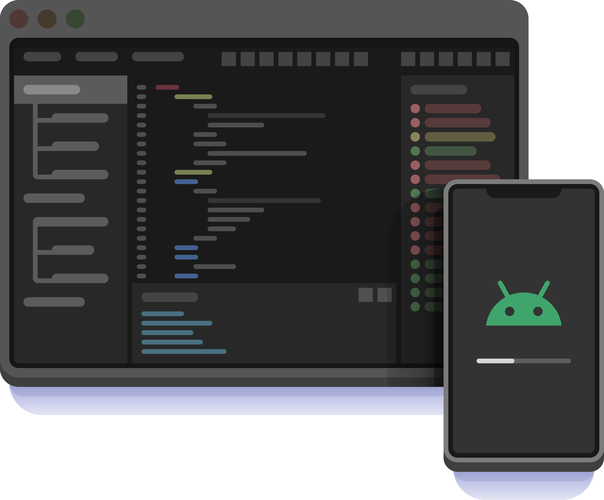3 Benefits From Adopting RPA in Accounting and Finance
Content
- Intercompany reconciliation:
- Maximize your ROI with these 3 RPA finance/accounting use cases:
- Invoice Processing for Accounts Payable
- Main Benefits of RPA in Finance and Accounting
- RPA in Finance and Accounting: 7 Best Use Cases
- Turn finance and accounting into the seat of innovation. We’ll show you how.
She later progressed to digital media marketing with various finance platforms in San Francisco. Automation will also lead to a reduction in financial fraud and proactively flag instances of potential fraud. Data analysis, and forecasting while interacting with other technologies. Unravel unique insights on our technological know-how and thought leadership. From ideation to launch, we follow a holistic approach to full-cycle product development.
It requires accuracy and timely execution to boost Days Sales Outstanding . But achieving this is challenging due to the human element on the payee’s and the recipient’s side. You can use RPA to automate Accounts Receivable processes, including customer data setup and management, data extraction, sales quotation, and invoice generation and distribution. RPA solutions with robust features can improve cash flow and eliminate cash gaps. RPA collects data from different sources and executes data entry automatically.
Intercompany reconciliation:
Let’s explore some of the most common uses for RPA in these areas while considering which advantages make RPA a worthwhile investment. Fraud and identity theft are the most significant issues that hurt the financial industry. Embracing RPA solution in banking and other financial institution can ensure better supervision and avoid cyber threats before they become a harm to handle. With the automated notifications and alerts, the significant parties involved can guess the exploit and trigger chain of events to ensure the recovery. This process checks the account balance of the accounts at certain intervals. This labor-intensive process includes steps like comparing account balance with various systems, verifying statements & reports to examine discrepancies if any and takes actions to correct the same.

It’s important that the accounting processes are broken down into steps beforehand, following business rules. Those responsible for implementing RPA can identify improvements in the process by trimming repetitive tasks and selecting which steps can be optimized using RPA. One of the leading commercial banks, Keybank adapted RPA at an early stage to improve efficiency in an extremely realistic manner. Account receivable that involves multiple steps of repetitive tasks of generating invoices and POs has been automated. Although the bank’s key focus is normally the payments, the automation of accounts receivable makes the payments process smooth and error-free from step 1 till the last one. BoTree Technologies, a leading software development company, provides complete RPA automation solutions in the finance and accounting industry.
Maximize your ROI with these 3 RPA finance/accounting use cases:
Speaking of payroll, bots help to avoid payment delays and inaccuracies, taking on data entry, timesheet validation, and deduction calculations. They can even extract data from paper sick lists that are still in use in some countries. Software robots can direct invoices to the team member responsible for their approval and set up reminders. They can also match the purchase order with the invoice, compare them, and flag the mismatches for review. If you adopt RPA bots as your digital workforce, they will issue and email invoices automatically.
- The several gaps in the financial and accounting automation can be closed with RPA.
- Robotic process automation is a productivity tool that allows users to configure scripts or “bots” that imitate selected tasks within a process.
- Although auditing automation should be handled at a slower pace to assess effectiveness, the outcome can be extremely valuable.
- Robots in accounting have the same level of security and access as a real person, but they can work without interruption.
- Robots collect, store data, and transform it for the purpose of forecasting.
Instead, it can automate certain parts of a complicated process involving numerous steps, and that has been a major driver of its use. RPA solutions increase the accuracy by 50 to 70 percent and eliminate all the errors from your financial recordings. rpa in finance and accounting Her research focuses on using disruptive technologies and social media information to enhance audit quality. She has written and presented papers in the areas of Audit Analytics, Blockchain, Robotic Process Automation, and Big Data.
Invoice Processing for Accounts Payable
Implementing RPA in AP will allow cycle time reduction, cost reduction, and preventing manual errors. When companies make numerous transactions with clients, it is possible for the buyer and seller to have different records about the balance due to issues in bank https://globalcloudteam.com/ payments, manual errors etc. This process allows both parties to identify and reconcile differences and have the same view about the outstanding balance. These systems are often more expensive than RPA solutions and create a negative employee experience.
RPA bots can simplify these laborious works and increase the month end closing process. The company has currently automated 1.1 million hours of work and reduced their costs by ¥10 billion. This is particularly impressive considering their target after the first 3 years of implementation was ¥20 billion. To solve a single problem, firms can leverage hundreds of solution categories with hundreds of vendors in each category.
Main Benefits of RPA in Finance and Accounting
RPA benefits go beyond process automation to include psychological gains. Using RPA, you can automate mundane accounting tasks and boost your teams’ morale. As a manager and departmental head, leverage your accountants’ knowledge and skills to enhance the capabilities of your RPA bots.

This will give them time to focus on other important tasks, which will enhance their productivity. They can use their time and skills for doing other essential tasks to serve clients the best. One can spend more time focusing on works that are useful for the growth of the business.
RPA in Finance and Accounting: 7 Best Use Cases
Financial statements and data must be correctly entered and maintained to forecast the future accurately. Your data will be correctly collected, transformed, and stored for forecasting purposes through bots. Software robots could be configured with intelligent data capture tools to scan purchase orders for critical information, enter it into the appropriate system, and initiate an approval request. Staff members can spend a significant amount of time processing purchase orders and routing them for approval to acquire critical goods and services for the business. RPA robots can easily handle most of these tasks’ fundamental components, requiring human intervention only when data does not align as expected. Once a team member approves the change, the bot updates the relevant system.

